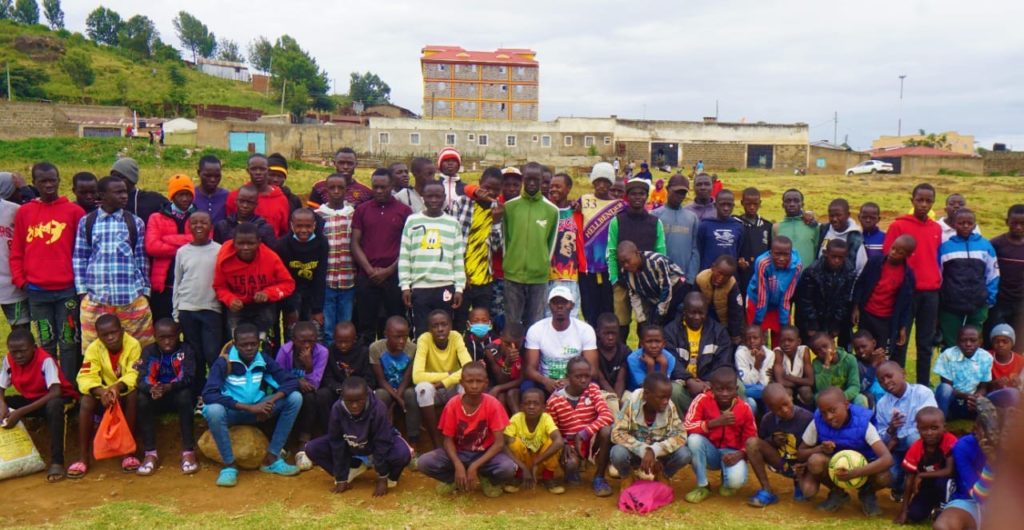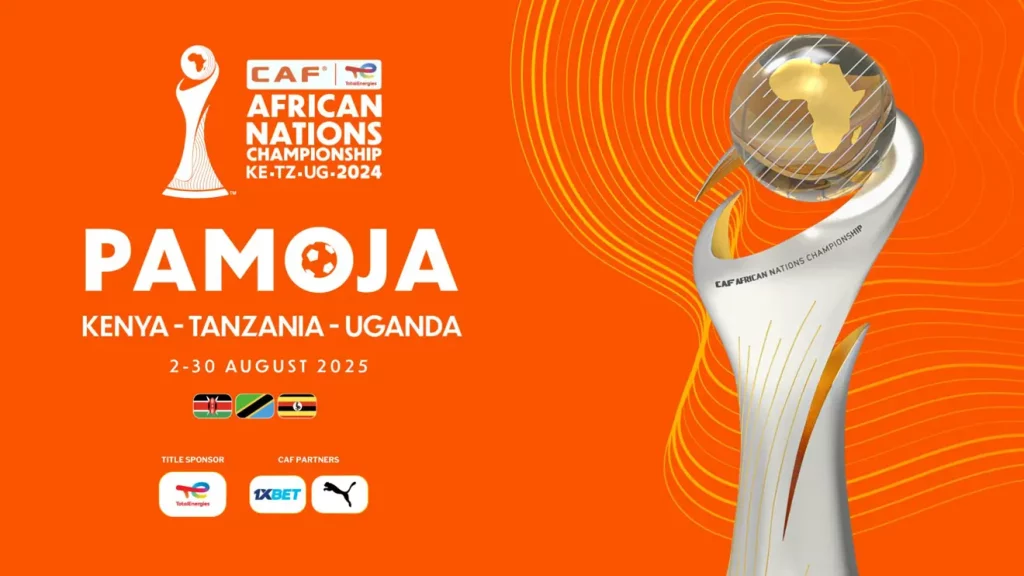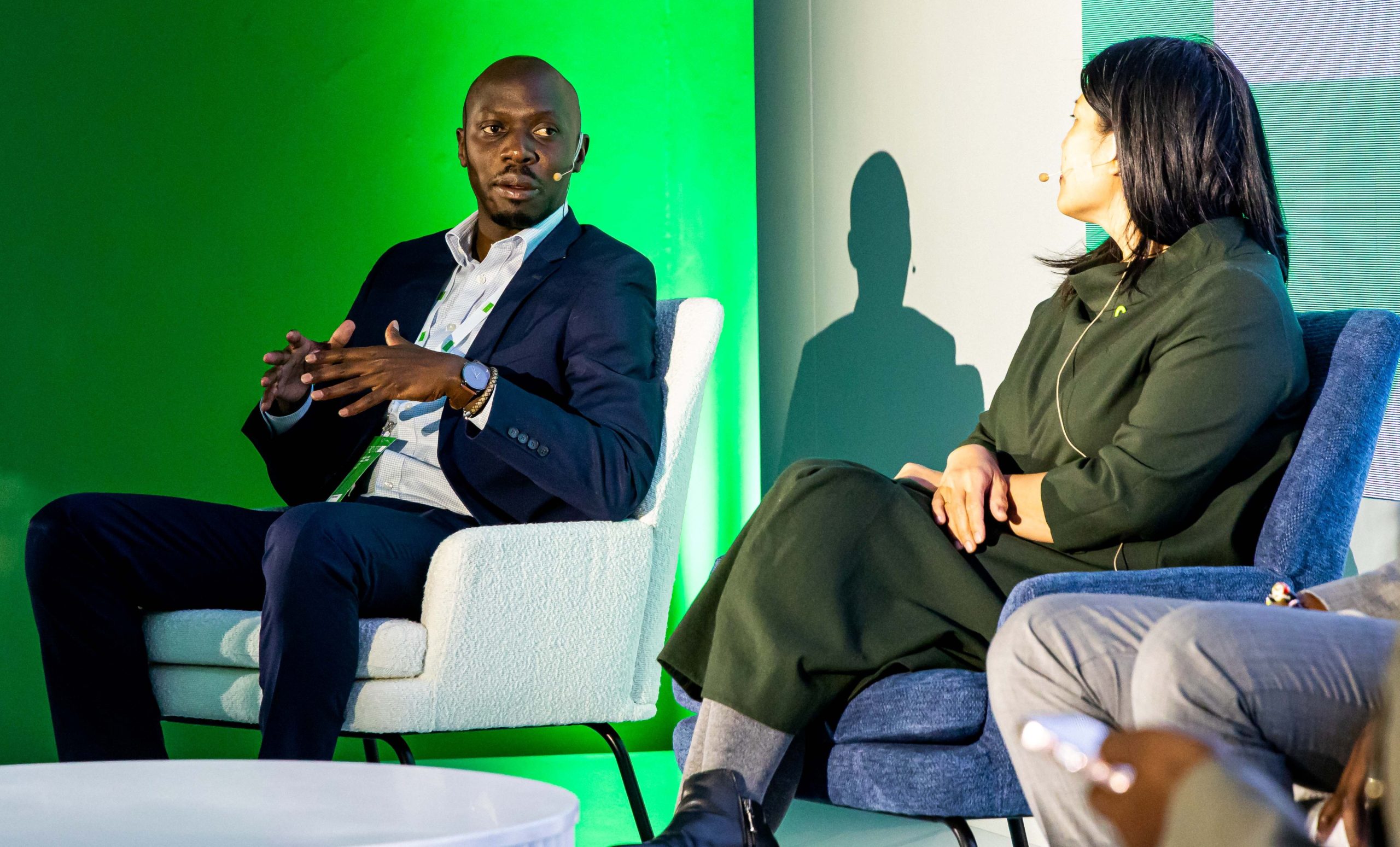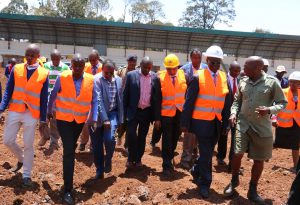This weekend marks a convergence that’s hard to ignore. On August 2nd, Tanzania hosts the opening of the African Nations Championship (CHAN). A day later, I turn 41. Kenya will open its campaign as co-host against DR Congo.
Football has always been central to my identity — not just as a sport, but as a lens to understand society. As CHAN kicks off on home soil, I find myself reflecting not just on the tournament, but on where Kenya is as a nation — and where I stand, personally and professionally. This personal journey, intertwined with my love for football, reflects the hope and resilience many of us carry.
No Regrets, But Plenty of Lessons
People often ask me if I regret leaving a comfortable job in Geneva to build The Football Foundation for Africa. I don’t. I’ve had moments of incredible joy and fulfilment. I’ve seen the value of this work — in communities, in conversations, in the lives of young people. Just last week, two beneficiaries of the FFA-ISDE partnership reached out. One had just graduated in Madrid. The other had secured an internship with a leading sports tech company — and was already exploring how to connect them with FFA and the broader African market. Gratitude! From the grassroots to boardrooms, from interacting with young African players asking how to improve speed to sharing my vision with diplomats, I continue to experience enriching exchanges in this journey. Growth!

But it’s been far from easy. The hardest part hasn’t been raising money or dealing with bureaucracy — it’s been the people. It’s been losing the support of those I once held close. The cold shoulders. The gatekeeping. It’s taught me that one of Kenya’s deepest crises isn’t just economic or political — it’s social and cultural.
The Culture of Gatekeeping
I’ve come to realise that collaboration is not a strong suit in our culture — at least not yet. In my experience, many Kenyans operate from a place of competition and mistrust, rather than community and solidarity.
There’s often a reluctance to open doors unless you come bearing gifts — usually in the form of money or influence. Invitations are rare, introductions even rarer. It’s a dynamic, I believe, that is deeply rooted in a complex post-colonial legacy (read Wangari Maathai’s “The Challenge for Africa”) — one that still feeds insecurity masked as superiority.
We Mirror What We Condemn
And here’s the harder truth: we often mirror what we condemn.
Many people complain — rightly — about the corruption and cruelty of those in leadership. But few recognise how those same behaviours show up in their circles: exclusion, gatekeeping, exploiting others, gossip disguised as concern. We criticise broken systems while quietly recreating them in our communities, businesses, and collaborations.
A Nation Still Bleeding
These thoughts have weighed on me even more heavily in light of the recent riots in Kenya. We’ve all seen the videos — a law enforcer shooting an unarmed protester at point-blank range, mob justice being meted out — and, disturbingly, in some quarters, justified. These are horrifying acts of cruelty. But they don’t happen in a vacuum.
Our trauma runs deep. Since the 2007/2008 post-election violence, something has shifted in our collective psyche. There’s more suspicion. More tribalism. More isolation. We’ve never truly healed.
The people pulling the triggers — whether literally or figuratively — are not anomalies. They are products of a culture we’ve all had a hand in shaping. A culture that glorifies power over service. Silence over accountability. Strife over solidarity.
Even the Hopeful Are Haunted
Even our Gen Z — bold, outspoken, and often proudly non-tribal — carry these scars. They reject ethnic politics, but still struggle to build movements that last. I see the mistrust, the internal fractures, the difficulty sustaining collective momentum.
The trauma hasn’t disappeared. It’s just evolved.
We’ve passed it down — not just through stories, but through silences. Through the way we speak, vote, hire, and include (or exclude) others.
Quiet Wins and Louder Silences
Despite this, I’ve kept going. I’ve chosen to share the highs — the speaking invitations, the global platforms, the partnerships. Not out of vanity, but as proof to young Africans that it can be done. You can stay grounded in your values and still gain global recognition.
Still, I’ve seen how even those moments are sometimes met with silence. A refusal to clap. A quiet resentment. And it stings. Because the same people calling for African unity, justice, or development can often be the ones undermining those who walk the talk.
We like to blame leaders. And they do carry responsibility. But we must also confront the rot within our communities, how we tear each other down, how we speak of others, how we withhold support. We can’t demand a new Kenya without becoming new people.
Could CHAN (And AFCON) Be a Catalyst?
Yet, I still believe in moments like CHAN. As CHAN kicks off, I find myself thinking about the role of sport — its ability to heal, and its power to break barriers. Could these upcoming continental events be more than just competitions? Could they be moments of reflection and recalibration — reminders of our shared humanity that help us dilute what is narrowly “Kenyan” and elevate what is beautifully African?
A Personal Reckoning
As I turn 41, I hold onto hope — not a blind one, but a deliberate choice. I still believe in building. In standing up when it’s easier to stay down. In raising new leaders, forging new paths, and offering our youth something deeper than dreams: dignity.
Turning 41, I am reminded that healing is slow, and transformation is quieter than we often expect. But I also know that culture is not static. It is shaped by actions, by stories, by platforms like this. And if I can continue to use mine — even with limited means — to inspire one young African to dream boldly, act with integrity, and create change, then it’s all worth it.
Many people may not be aware of the personal struggle I’ve faced, as I often choose to highlight the positives. I’m fortunate to be regularly invited to global forums to share my experiences, and I make a point of sharing these moments online. This isn’t to boast, but to show what’s possible. It’s my way of quietly communicating to young Africans: you can build something from scratch, earn global recognition, and do it all with integrity.
Sport Is a Classroom First
And I believe that a new culture — one of empathy, accountability, and shared progress — can take root.
The road is lonely sometimes. But it’s the right one.
As CHAN 2024 kicks off, we’ll witness the raw talent and passion of African players who are still rooted in their local clubs and communities.
But we must remember: Sport is first an education, then entertainment.
These young athletes are learning more than tactics — they’re learning resilience, teamwork, discipline, and leadership. CHAN is not just a competition; it is a classroom. One that can teach nations the value of investing in their own.
In the spirit of CHAN – and 41
Happy CHAN. Happy 41. PAMOJA!






